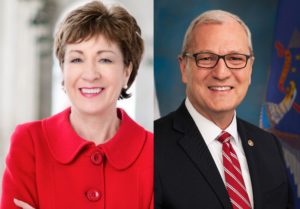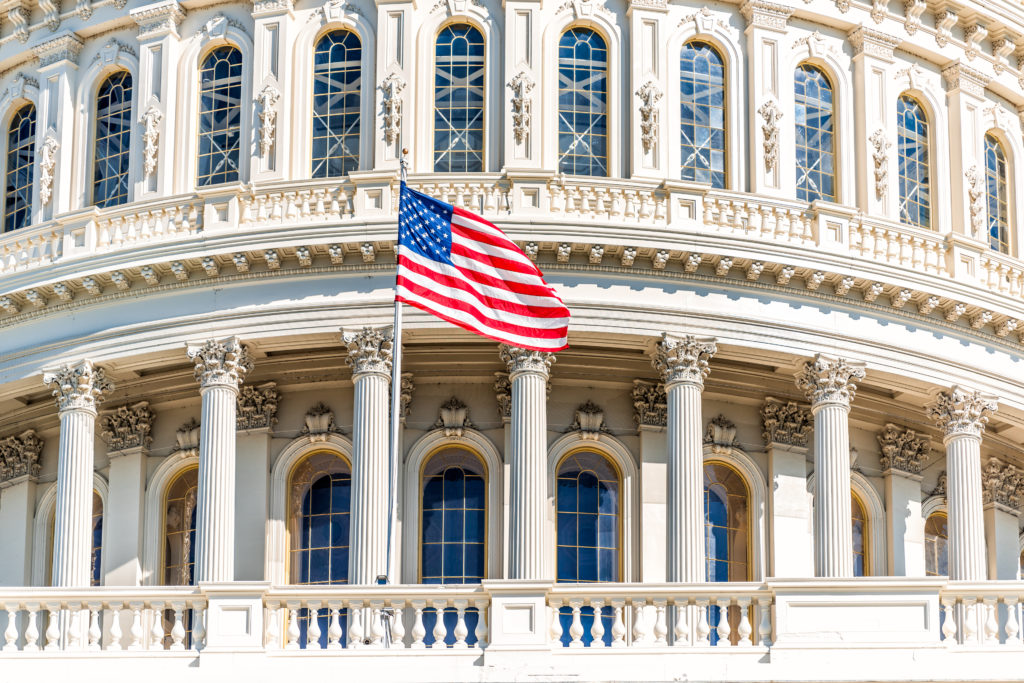
GOP ‘HEALS Act’ package includes easier PPP forgiveness; similar bill hits 25 Senate sponsors
By onAnnouncements | Business Practices | Legal | Market Trends | Repair Operations
A GOP “HEALS Act” portfolio of COVID-19 legislation Senate Majority Leader Mitch McConnell, R-Ky., heralded as “another bold framework to help our nation” would reduce the administrative burden on many small businesses seeking PPP loan forgiveness.
Under Senate Bill 4321, the “Continuing Small Business Recovery and Paycheck Protection Program Act, all PPP borrowers receiving $150,000 or less shall automatically have their loan forgiven if the debtee “signs and submits to the lender an attestation that the eligible recipient made a good faith effort to comply with the requirements under section 7(a)(36) of the Small Business Act (15 U.S.C. 636(a)(36)).”
That’s it, though they will have to keep “records relevant to the attestation that prove compliance with those requirements” for three years, and the Small Business Administration can still audit them for “fraud, ineligibility, or other material noncompliance with applicable loan or loan forgiveness requirements.”
Anyone who borrowed more than $150,000 up to $2 million would also be exempt from the CARES Act requirement to submit:
(1) documentation verifying the number of full-time equivalent employees on payroll and pay rates for the periods described in subsection (d), including-
(A) payroll tax filings reported to the Internal Revenue Service; and
(B) State income, payroll, and unemployment insurance filings;
(2) documentation, including cancelled checks, payment receipts, transcripts of accounts, or other documents verifying payments on covered mortgage obligations, payments on covered lease obligations, and covered utility payments;
(3) a certification from a representative of the eligible recipient authorized to make such certifications that-
(A) the documentation presented is true and correct
However, they’d still have to provide “a certification from a representative of the eligible recipient authorized to make such certifications that … the amount for which forgiveness is requested was used to retain employees, make interest payments on a covered mortgage obligation, make payments on a covered rent obligation, or make covered utility payments” and “any other documentation the Administrator determines necessary.”
Rubio and Collins’ bill would enact a three-year record-keeping requirement and permit SBA administrator audits on those small businesses.
Their measure would also call for Small Business Administrator Jovita Carranza to present a plan to audit PPP loans, including some in that $0-$2 million range. Carranza would also have to update the committees every month on any “substantial changes” to her audit plan and audit and review statistics.
“We include a number of other important provisions, such as allowing seasonal businesses more flexibility in calculating their loan amounts and simplifying the loan forgiveness process for smaller borrowers,” Collins said on the Senate Floor on Monday, according to a Congressional Record transcript.
Case to simplify
AQN Strategies research has concluded society would come out ahead if all loans $150,000 and under were forgiven — even if some of the recipients should have paid back some of the money.
“Leveraging these assumptions, we set out to estimate the incremental cost that would stem from auto-forgiveness,” AQN wrote. “For example, if we assume inherent forgiveness rates of 90%, we wanted to understand the difference in cost between the government forgiving the remaining 10% of loans versus the costs to both businesses and banks to apply for all 100% of loans and associated costs for those not forgiven. Our analysis suggests that the cost to society (bank profit + business cost) would be lower than the cost for the government to auto-forgive loans under $100K. If policy loosens in a way that forgiveness is inherently more likely, such as by extending the usage window (as currently proposed), then auto-forgiveness may be palatable for loans up to $150K.
“With assumed forgiveness of 85-95% by segment, our baseline scenario suggests that the government would forgo an estimated repayment of $10 billion of earmarked PPP funding due to small business repayment as part of an auto-forgiveness strategy up to $150k. If higher forgiveness rates are assumed, then the cost of forgone repayment drops precipitously.”
The SBA reported that 86.5 percent of all PPP borrowing through June 30 involved loans below $150,000. Only 0.6 percent of all PPP loans exceeded $2 million.
AQN pointed to the complexity of the 11-page forgiveness application released by the Small Business Administration on May 15. (The SBA appears to have since split the document into a four-page form and seven pages of instructions. A fifth page on the form is optional.) The government last month released an “EZ” version involving a three-page form and four pages of instructions. AQN pointed out that a form like the 11-page original would cost the small business $2,000-$4,000 in time or third-party expense.
The research also found banks would lose money when smaller-dollar loans of less than $19,000 below. At the time of AQN’s study, it found 60 percent of PPP loans would fall into this category.
Nearly 87.3 percent of the 19,681 Paycheck Protection Program recipients through June 30 in the “Automotive Body, Paint, and Interior Repair and Maintenance” segment received less than $150,000. Only 12 loan recipients (0.06 percent) in the auto body sector could have potentially borrowed more than $2 million, according to a Repairer Driven News analysis of Small Business Administration data. (The SBA’s records are a little vague how much was borrowed at the $150,000 mark and above.)
Competing forgiveness bill
Rubio and Collins’ new proposal is interesting in that many Senate Republicans and even some Senate Democrats had already backed a proposal to easily forgive PPP loans through $150,000.
Under Senate Bill 4117, borrowers of those smaller amounts would merely need to submit a “one-page online or paper form, to be established by the Administrator not later than 7 days after the date of enactment of this subsection, that attests that the eligible recipient complied with the requirements under section 7(a)(36) of the Small Business Act (15 U.S.C. 636(a)(36)).”
Banks wouldn’t be held responsible for any small businesses who lied on the form. The government could only pursue enforcement against recipients if the business “commits fraud or expends covered loan proceeds on expenses that are not allowable under section 7(a)(36)(F) of the Small Business Act (15 7U.S.C. 636(a)(36)(F)),” according to the bill.
Sen. Kevin Cramer, R-N.D.; Thom Tillis, R-N.C.; Bob Menendez, D-N.J.; and Kyrsten Sinema, D-Ariz., co-sponsored that legislation June 30. Three more Republicans joined them to support the bill July 1. Seventeen more Republicans and another Democrat (Sen. Joe Manchin, D-W.Va.) joined them between July 21 and Tuesday. Cramer estimated a forgiveness application cost the business $2,000 and the bank $500. He forecast banks as a whole could save nearly $2 billion and eligible small businesses could save $7.4 billion under his bill.
Nearly 140 regional and national associations earlier this month encouraged congressional small business committee leaders to support S. 4117. Familiar automotive aftermarket names like SCRS, MEMA, SEMA, NADA, TIA and the Auto Care Association joined interests like the U.S. Chamber of Commerce on to express support for the measure.
Despite Rubio and Collins’ prospect of easier forgiveness for the $150,000-$2 million range of borrowers, Richard Hunt, CEO of the S. 4117-supporting Consumer Bankers Association, urged Congress on Monday to use Cramer, Menendez, Tillis and Sinema’s proposal instead.
“Streamlined forgiveness for millions of small businesses on Main Street struggling through this pandemic is an absolute must and we are glad it is a central part of these negotiations,” Hunt said in a statement. “The details, however, matter.
“The original forgiveness process outlined by SBA required five pages of calculations and extensive financial know-how, which would require the majority of mom-and-pop businesses to hire outside accountants. Even the SBA’s ‘EZ’ form would take significant resources for America’s smallest businesses to complete. Maybe the third time is the charm, but Congress should not leave something this important to chance.
“During the negotiation process, Congress must improve the forgiveness language by providing crystal-clear, prescriptive guidance like the bipartisan legislation introduced by Sens. Cramer, Menendez, Tillis and Sinema and Reps. Houlahan and Upton.”
Cramer also pushed for his version on the Senate Floor on Thursday.
“Jobs, kids, and healthcare, students, parents, and patients–these are what Senate Republicans are fighting for.
“I have introduced bipartisan legislation to further this goal,” he said, according to a Congressional Record transcript. “I believe we should include it in the HEALS Act in its entirety. Many pieces of it are in, but I think we can do more.
“… The bipartisan bill that I introduced with Senators Menendez, Tillis, and Sinema–and now has 25 Senate sponsors–would fulfill our original intent and the promise we made to lenders and applicants by creating a simple, accountable process for loan forgiveness.
“Our bill also includes a provision which makes sure that the lenders will not be held responsible for improper actions of the borrowers, while still ensuring proper enforcement action can be taken if necessary. In fact, the accountability structure is intact. …
“We shouldn’t backtrack on the guidance we gave lenders by holding them accountable for the decisions the borrowers made. …
“We should consider it in bipartisan negotiations and add it to the HEALS Act in its entirety.”
Regarding lenders, Collins and Rubio’s bill also includes a safe harbor for lenders who in good faith rely on borrowers’ certification or documentation. Cramer et al’s bill declares lenders can’t be prosecuted under a variety of specific laws and “any other Federal, State, or other criminal or civil law or regulation” for relying on the borrower’s statements.
Treasury Department support?
As Cramer observed, Treasury Secretary Steven Mnuchin was open to the idea of forgiving lower-dollar loans during a House Small Business Committee hearing July 17.
Ranking Member Rep. Steve Chabot, R-Ohio, asked Mnuchin about the idea of forgiving all loans under $150,000.
“I’ve heard a lot of concerns from folks out there about how complicated the forgiveness process can be,” Chabot said.
Mnuchin said he looked forward to working with House and Senate Small Business Committees to “simplify the process.” He acknowledged that the current PPP format “made it complicated. We tried to issue as much guidance as we could.”
To the idea of forgiving all “small loans,” Mnuchin said: “I think that’s something we should consider. We should obviously make sure there’s some fraud protection, but we look forward to working with this committee and others.”
But Mnuchin also during the hearing told Rep. Angie Craig, D-Minn., that he was “somewhat hesitant” to permit an outright “blank check,” where a PPP loan of $150,000 or less meant “you don’t have to do anything.”
He said he was concerned about fraud and desired that oversight committees felt the PPP money had been spent properly.
“I think some level of reporting in a simple way is important,” he said.
Be heard: Congressional contact information can be found here.
More information:
SBA Paycheck Protection Program website
SBA PPP loan forgiveness application
SBA, June 16, 2020
SBA “EZ” loan forgiveness application
SBA, June 16, 2020
“Oversight of the Small Business Administration and Department of Treasury Pandemic Programs”
U.S. House Small Business Committee YouTube channel, July 17, 2020
“Is It Easier to Ask for Forgiveness Than Permission? Not for PPP Loans Under $150K”
AQN Strategies, 2020
Images:
From left: U.S. Sens. Susan Collins, R-Maine, and Kent Cramer, R-N.D., are shown. (Provided by Collins and Cramer’s offices)
The U.S. Capitol is shown. (krblokhin/iStock)

